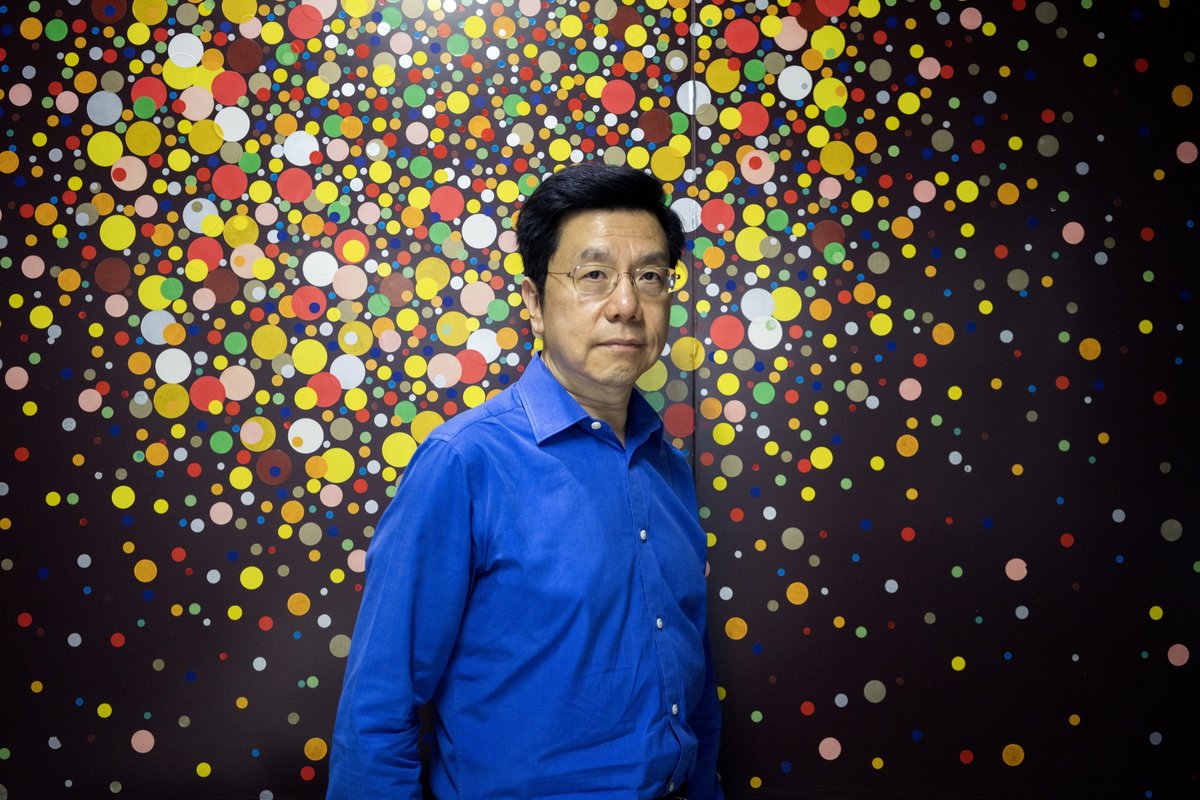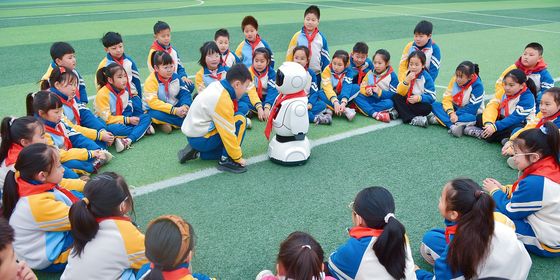Entrepreneur Kai-Fu Lee and sci-fi writer Chen Qiufan weave fiction and technical explanation to illustrate the opportunities and pitfalls of artificial intelligence
The future of humanity is bountiful, rich with cheap clean energy, abundant material goods, and amazing medical breakthroughs all made possible with artificial intelligence. But not for you.
Your future is in grave peril, when those same AI marvels shoot down your job security, economic prospects, and, perhaps, you.
This is the paradox at the heart of AI 2041: Ten Visions for Our Future, the newly released collaboration between technology venture capitalist Kai-Fu Lee, former president of Google China and author of AI Superpowers), and fellow engineer-turned-writer Chen Qiufan (Waste Tide). Though not without its problems, this engaging, timely, and informative volume of short stories and analytic essays largely achieves the authors’ aim, outlined in the book’s introduction, of “a uniquely engaging and accessible primer on AI.”
The two authors blend their expertise well, overall. Lee, the famous billionaire futurist, provides in his introduction a list of over 70 AI-enabled innovations “with a greater than 80 percent likelihood of coming to pass” by 2041. He also writes the essays detailing the state of the science, inherent challenges, and possible solutions.
The fiction is provided by acclaimed sci-fi writer Chen, who has previously won 12 Chinese Nebula Awards for his short stories. His tales take us around the world and back to China with a visit to futuristic Shenzhen, zipping along with self-driving cars, and a Shanghai bristling with robots, automated health-code restrictions, and the dread of a long-lasting pandemic (sound familiar?). Fittingly, they reveal the heights of optimism and depths of dread that this burgeoning AI superpower inspires.
Set in the year 2041, each protagonist’s arc reveals something of the potential and pitfalls our high-tech future will bring. There is cause for alarm, but the authors return frequently to the sentiment articulated in their introduction: “We are the masters of our fate, and no technological revolution will ever change that.”
Lee, one of China’s most popular optimists about our technological future after the success of AI Superpowers and his widely-circulated “10 Letters to Chinese College Students,” has already written and spoken extensively on the power of deep-learning and China’s data-collection advantages. He carries that attitude into the book from start to finish. Each story begins with an introduction from him, like Rod Sterling talking to the camera before each episode of The Twilight Zone, that analyzes an array of technologies for the lay reader. Even the most amateur reader can quickly understand concepts like deep-learning, blockchains, sequence transduction, and more. That alone is useful, given the role self-directed algorithms will play in shaping our future.
The quality of the literature is highly variable; perhaps every literary anthology is destined to such a fate, especially when its purpose is to inform as much as to entertain. The largest shortcoming is Chen’s tendency to tell rather than show, such as when a VR program helps one character, Silver Sparrow, “understand the diversity of human experience at a cognitive level, as well as experience a greater connection with the world at an emotional level. He felt a new joy flow through him during these VR immersions.”
But Chen skillfully employs a wide cast of characters, including some marginalized identities, like a young gay Nigerian man and a boy on the autism spectrum. He also puts in effort to make them more than just props in a hard sci-fi demonstration of new technology. There are some satisfying endings and agreeably familiar tropes from James Bond films, 24, Ender’s Game, and The Girl with the Dragon Tattoo. The turning points may be clumsy at times, and the character development abbreviated, but these short stories succeed in sparking the empathy needed to fully engage with a topic as weighty as the future of humanity.
AI 2041 features a dizzying array of technologies, starting simple (insurance using deep-learning to monetize every choice) and progressing to world-changing (automation of routine jobs, analytic jobs, then nearly all human employment). Lee grounds these predictions in extant breakthroughs and balances his optimism with warnings about the economic and ethical complications they will bring.
Lee’s warnings are timely, with some of these issues already a reality in China today, where AI technology is developing apace and controversies over its use abound. Smart cameras embedded with AI tools for facial recognition have saturated China’s cities, thanks in part to the “Sharp Eyes” digital surveillance program launched in 2015 by the National Development and Reform Commission. They’ve become a part of everyday life, scanning our faces to open package lockers, use AliPay’s “Smile to Pay,” or even enter our own homes. Rogue companies have collected that data without permission and used it for dubious means, like when a number of real estate companies were caught covertly collecting the biometric data of customers to determine whether they were first-time buyers and thus eligible for large discounts in 2020.
Lee and Chen’s book comes just as a backlash against companies has emerged and regulators have started to draw up rules. Last year, Hangzhou became the first city in the country to ban mandatory facial recognition in residential compounds. China's first Personal Information Privacy Law comes into effect next month, and addresses AI specifically, at least regarding automated decision-making: when people’s rights are significantly affected, they can demand an explanation and opt out. But people may not know an algorithm is making the decision and the other potential pitfalls of AI are as-yet unaddressed by national laws or even local guidelines.
Shenzhen, where I write, one of China’s major tech hubs, this year became the first city in the country to draft AI regulations. According to the new rules, the city would eventually create an ethics committee to “guide and regulate the formulation and implementation of artificial intelligence ethics and safety standards.” But for now in China, “a large gap remains between defining broad ethical principles and norms to guide AI development and putting these into practice through standards, laws, and government or corporate regulation,” according to a June 2021 report by Germany’s Mercator Institute for China Studies.
Lee deserves credit for directing our attention to such ethical issues involving privacy violations, deep-fakes, AI liability, potential manipulation (of data and of people), rising inequality, displacement-driven despair, and the existential crisis of autonomous killing machines. His potential solutions begin specific and grounded, but veer to the fanciful when he envisions “an inclusive new world” and “a total financial overhaul.”
What remains unimaginable, or at least unspeakable, is the prospect of powerful AI-enabled tools employed by corrupt and self-serving tyrants. A state of total surveillance and automated restrictions could entrench the worst power mongers…and the world, lately, can count a number of politicians and corporate tycoons who fit that mold. But perhaps Lee and Chen’s vision of 2041 can help us imagine both the dangers and the way to solve them: repeatedly, building together on what we have. That empathy and imagination (along with manual dexterity) are things AI will never have. Those distinctly human traits are what we’ll need to survive the changes to come.













